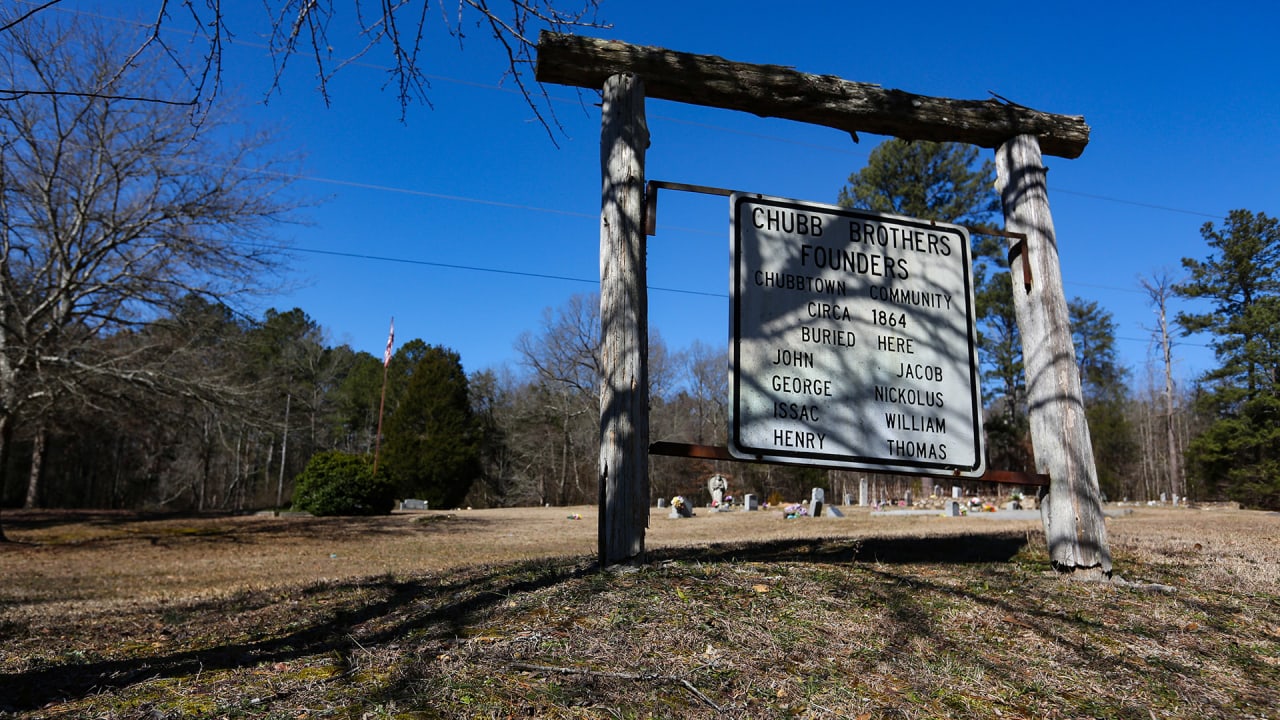Miles
Well-known member
- Mar 18, 2019
- 2,455
- 0

You hear the car before you can see it.
The engine is all that signifies someone is approaching until the dark SUV turns onto the gravel road leading up to the church.
The dust sinks back down to earth as Kathy Freeman puts her vehicle in park and steps out into the church parking lot.
Her voice rings out as she welcomes four out-of-towners to the town of her ancestors.
Back in Denver, the Chubb family name is better known for sacks.
Bradley made sure of that during his rookie season. In 2018, the fifth-overall draft pick recorded 12 sacks for the Broncos and challenged the all-time rookie sack record for most in one year.
As the year progressed, it seemed more and more No. 55 jerseys dotted Broncos Stadium at Mile High each week as the NC State product proved himself to Denver.
Make no mistake: Freeman, a distant relative of Bradley Chubb, is overjoyed at the thought of her relative’s success. She’s never met him, so in some ways she’s much like any of Chubb’s other fans.
But they also share this lineage, this town — and neither one minimizes that connection.
Entering the church, Freeman spends more time talking about the eight brothers who founded in Chubbtown in 1864 than she does dwelling on the football careers of Bradley or Nick Chubb, who plays running back for the Cleveland Browns.
The Chubb brothers, she explained, were free black men who founded the town before slavery was abolished and at the same time as many of their black counterparts headed north for the prospect of a better, freer life.
But the Chubb family stayed. And in that small pocket of a town, they farmed and operated businesses like a post office and blacksmith.
As Freeman gives a tour of the town — stories intertwined with invitations to return for a true Chubbtown supper — there are certain pieces of history around that ensure you understand what’s important in this small Georgia town.
There are the original pews on which members of the Chubb family sat when they attended services more than 100 years ago.
There are the headstones that are sprinkled across the cemetery — ones for the brothers and for the descendants that followed.
There’s an old building that used to be the town’s fire station, back when the first members of this community worked the land to make a living.
“I was learning history before I knew it was history,” Freeman says.
When Chubb made his first visit to Chubbtown in his early teenage years, he felt those same feelings.
Only amplified.
“I remember my dad used to talk about it [when I was] growing up, but I never believed him,” Chubb says. “I was like, ‘You don’t have a city named after you.’ I thought he was just talking junk. I remember we went to go see it in high school, and I was just blown away. There’s not much there, but you see all the history there. All eight brothers that were there — that founded it — you see their gravestones.”
But the ties are stronger than that for Chubb.
“We went there again when my granddad passed,” Chubb says. “He was buried in Chubbtown.
“Just the history behind the whole place and how peaceful it is out there, that’s what I really love.”
Some day — after he is done sacking quarterbacks and aiming to bring another world championship to Denver — Chubb may return to Chubbtown with his own teenage kids.
That’s his plan, anyway, if he ends up having children.
“I feel like a lot of my identity is intertwined with Chubbtown, because my dad, he raised us off the principles that those same founding fathers had,” Chubb says. “I feel like that shaped me and my brother into the men we are today. My dad used to say, ‘You can’t do stuff like that, ‘cause you’re a Chubb.’ That stuck with me and my brother throughout our whole upbringing and shaped us into we are today.”
As he aims to lay down the same foundation for his own children, he’ll show them the church and the decades-old bible that sits inside.
He’ll show them the creek where his own father used to frolic in the summertime
He’ll show them the gravestones of the freed men who founded this town — and the ones of those who helped it live on.
“I definitely felt a connection there,” Chubb says. “You feel like you’re [transported] back and you’re living right there with them. It’s pretty cool.”
Some things will undoubtedly be different.
The suburban sprawl may inch closer. More land and more houses may change hands. Cell service may yet make it to Chubbtown.
As the years pass, it’s a near certainty that some of the elder members of the Chubb family will take their place in the family cemetery.
But it’s clear the history cannot be cheapened. The aura cannot be diluted. The sacredness cannot be destroyed.
Chubbtown — and all that it stands for and has ever stood for — will remain.
